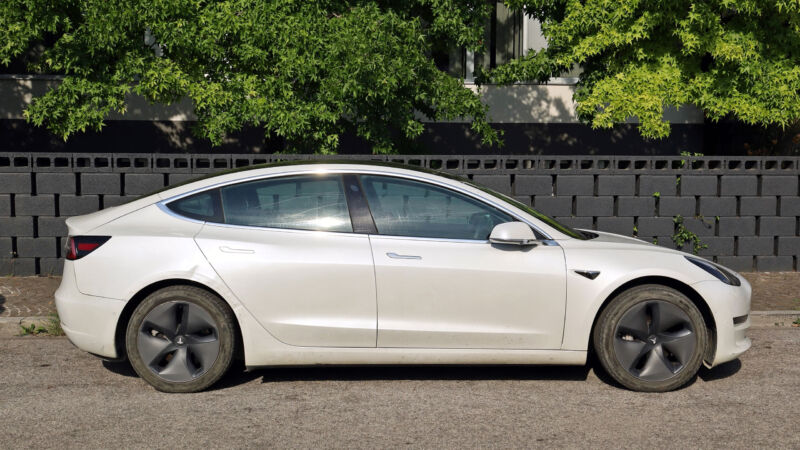Used Teslas are getting very cheap, but buying one can be risky

Enlarge / Used Tesla Model 3s can be had for less than $20,000 now. (credit: Getty Images)
The launch of a new electric vehicle these days is invariably met with a chorus of "this car is too expensive"—and rightfully so. But for used EVs, it's quite another story, particularly used Teslas, thanks to a glut of former fleet and rental cars that are now ready for their second owner.
"Due to a variety of reasons, Tesla resale values have plummeted, making many Tesla models very affordable now. Plus, for some consumers, an additional $4,000 Federal tax credit on used EVs may apply, sweetening the deal even further. Buying a used Tesla can be a great deal for the savvy shopper, but there are significant things to look out for," says Ed Kim, president and chief analyst at AutoPacific.
Indeed, a quick search on the topic easily reveals some horror stories of ex-rental Teslas, so here are some things to consider if you're in search of a cheap Model 3 or Model Y.